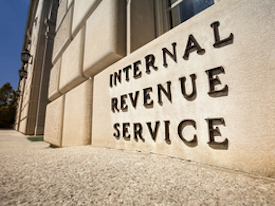
Lookout for IRS letters in January
 With preparations for the next tax season starting there is something important you should be aware of.
With preparations for the next tax season starting there is something important you should be aware of.
The IRS will be sending out two letters to taxpayers in January:
Letter 6419 – Advance Child Tax Credit Payments
Letter 6475 – Economic Impact (stimulus) Payment
It is important that you retain these letters and forward them with your other 2021 tax return data and documents. Incorrectly reporting advance child tax credit or economic impact payment will cause delays in tax return processing and the issuance of refunds. Additionally, proper reporting will prevent unnecessary correspondence being sent by the IRS.
Please read below for more information on Advance Child Tax Credit Payments:
IRS sending information letters to recipients of advance child tax credit payments and third Economic Impact Payments
The IRS started issuing information letters to advance child tax credit recipients in December. Recipients of the third round of the Economic Impact Payments will begin receiving information letters at the end of January. Using the information in these letters when preparing a tax return can reduce errors and delays in processing.
Taxpayers receiving these letters should retain them. Do not throw them away. These letters can help taxpayers, or their tax professional prepare their 2021 federal tax return and should be forwarded with other pertinent tax information to your preparer.
Advance child tax credit payments letter can help people get remainder of 2021 credit
To reconcile and receive all the 2021 child tax credits to which they are entitled, the IRS began sending Letter 6419, 2021 advance CTC, in late December 2021 and will continue into January. This letter includes the total amount of advance child tax credit payments taxpayers received in 2021 and the number of qualified children used to calculate the advance payments. Taxpayers should keep this and any other IRS letters about advance child tax credit payments with their tax records.
Taxpayers who received advance payments need to file a 2021 tax return and compare the advance payments they received in 2021 with the amount of the child tax credit they can properly claim on their 2021 tax return.
The letter contains important information that can make preparing their tax returns easier. Taxpayers who received the payments in advance can also review their payments by using the CTC Update Portal available on IRS.gov.
Eligible families that did not receive any advance child tax credit payments are entitled to claim the full amount of the child tax credit on their 2021 federal tax return. This includes families who don’t normally need to file a tax return.
Economic Impact Payment letter can help people claim the 2021 recovery rebate credit
The IRS will begin issuing Letter 6475, Your Third Economic Impact Payment, to EIP recipients in late January. This letter will help Economic Impact Payment recipients determine if they are entitled to and should claim the recovery rebate credit on their 2021 tax returns when they file in 2022.
Letter 6475 only applies to the third round of Economic Impact Payments, which were issued in March through December of 2021. The third round of Economic Impact Payments, including “plus-up” payments, were advance payments of the 2021 recovery rebate credit that would be claimed on a 2021 tax return. Plus-up payments were additional payments the IRS sent to people who received a third Economic Impact Payment based on a 2019 tax return or information received from the Social Security Administration, Railroad Retirement Board or Veterans Affairs. Plus-up payments were also sent to taxpayers who were eligible for an additional amount based on their 2020 tax return.
Most eligible taxpayers already received the payments. However, if you are missing stimulus payments you should review information on IRS.gov to determine eligibility and whether they need to claim a recovery rebate credit for 2020 or 2021. This includes taxpayers who don’t normally need to file a tax return.
The letters include important information that can help people quickly and accurately file their tax return.



